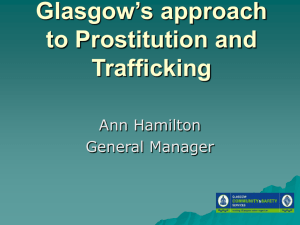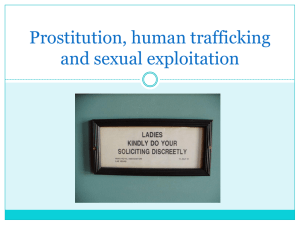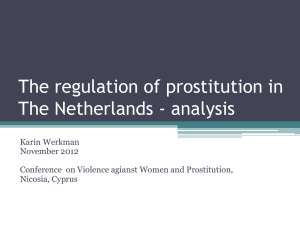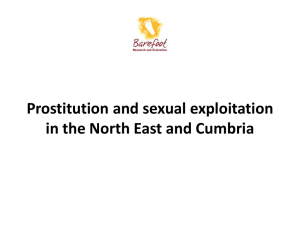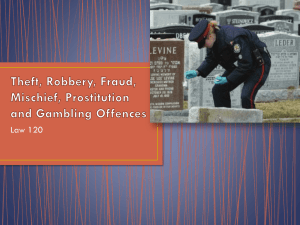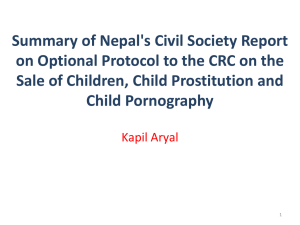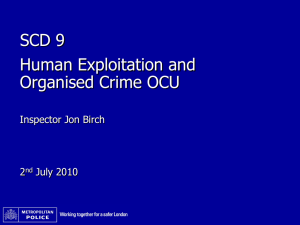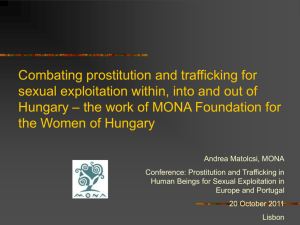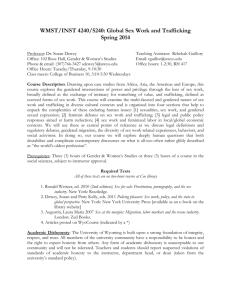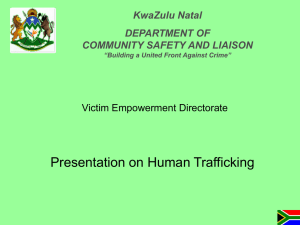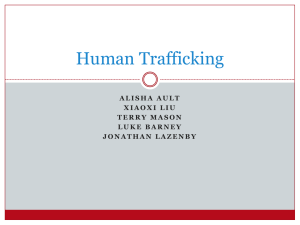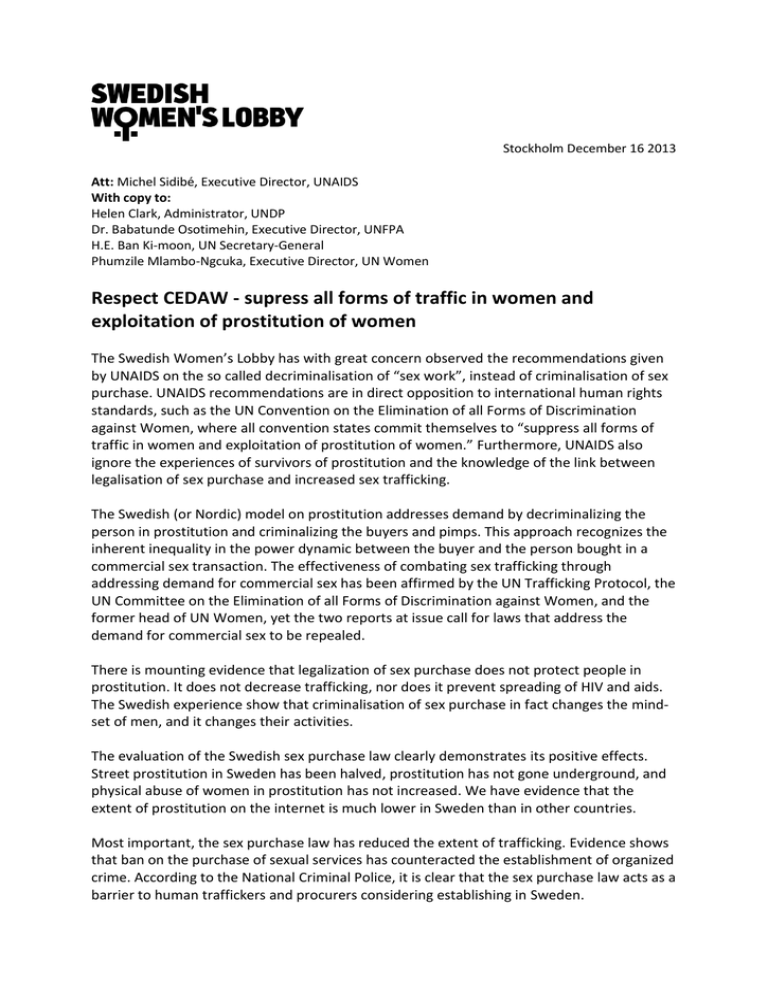
Stockholm December 16 2013
Att: Michel Sidibé, Executive Director, UNAIDS
With copy to:
Helen Clark, Administrator, UNDP
Dr. Babatunde Osotimehin, Executive Director, UNFPA
H.E. Ban Ki-moon, UN Secretary-General
Phumzile Mlambo-Ngcuka, Executive Director, UN Women
Respect CEDAW - supress all forms of traffic in women and
exploitation of prostitution of women
The Swedish Women’s Lobby has with great concern observed the recommendations given
by UNAIDS on the so called decriminalisation of “sex work”, instead of criminalisation of sex
purchase. UNAIDS recommendations are in direct opposition to international human rights
standards, such as the UN Convention on the Elimination of all Forms of Discrimination
against Women, where all convention states commit themselves to “suppress all forms of
traffic in women and exploitation of prostitution of women.” Furthermore, UNAIDS also
ignore the experiences of survivors of prostitution and the knowledge of the link between
legalisation of sex purchase and increased sex trafficking.
The Swedish (or Nordic) model on prostitution addresses demand by decriminalizing the
person in prostitution and criminalizing the buyers and pimps. This approach recognizes the
inherent inequality in the power dynamic between the buyer and the person bought in a
commercial sex transaction. The effectiveness of combating sex trafficking through
addressing demand for commercial sex has been affirmed by the UN Trafficking Protocol, the
UN Committee on the Elimination of all Forms of Discrimination against Women, and the
former head of UN Women, yet the two reports at issue call for laws that address the
demand for commercial sex to be repealed.
There is mounting evidence that legalization of sex purchase does not protect people in
prostitution. It does not decrease trafficking, nor does it prevent spreading of HIV and aids.
The Swedish experience show that criminalisation of sex purchase in fact changes the mindset of men, and it changes their activities.
The evaluation of the Swedish sex purchase law clearly demonstrates its positive effects.
Street prostitution in Sweden has been halved, prostitution has not gone underground, and
physical abuse of women in prostitution has not increased. We have evidence that the
extent of prostitution on the internet is much lower in Sweden than in other countries.
Most important, the sex purchase law has reduced the extent of trafficking. Evidence shows
that ban on the purchase of sexual services has counteracted the establishment of organized
crime. According to the National Criminal Police, it is clear that the sex purchase law acts as a
barrier to human traffickers and procurers considering establishing in Sweden.
Furthermore, women who have left prostitution refer to the law as helping them to leave
prostitution. They do not blame themselves; instead they put the blame on the male
purchasers.
The ban on the purchase of sexual services was intended as a statement of society’s view
that it should not be possible to buy a human being, and the evaluation shows that this has
been the case. Sweden has experienced an increased public support for the ban, and the
support is greatest among young people.
UNAIDS recommendation to revise and narrow the definition of trafficking in the UN
Protocol to Prevent, Suppress and Punish Trafficking in Persons, Especially Women and
Children (UN Trafficking Protocol), is solely a way to withdraw the rights of victims of
trafficking to be recognized as such.
Statistics show that the majority of cases of HIV and aids in Sweden are immigrants from
especially Africa and Asia who emigrate from countries where prostitution is widespread and
sex purchase is allowed and part of common masculinity. A new global agreement on
understanding sex purchase as trade in human beings, and the support for those who suffer
from the effects of prostitution should indeed be an effective means to stop the spreading of
HIV and aids.
The Swedish Women’s Lobby urge that UNAIDS, UNFPA and UNDP clarify their positions on
the grounded links between sex purchase, trafficking and spreading of HIV/aids.
Yours sincerely,
Gertrud Åström, president, the Swedish Women’s Lobby

